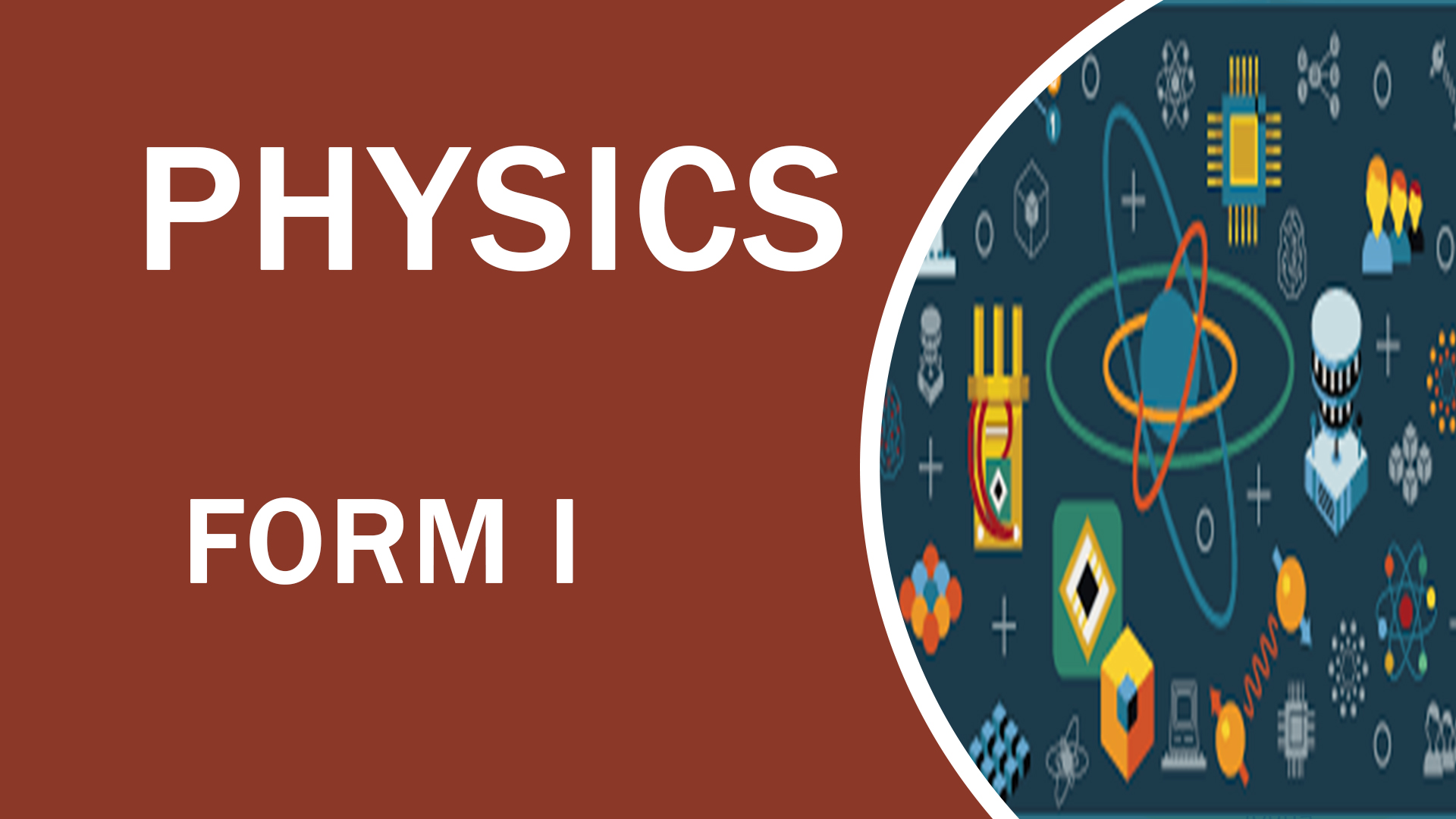Learning Outcomes – Physics Form One
By the end of Form One Physics, students should be able to:
-
Define Physics and explain its importance in daily life and technology.
-
Use basic measurement tools accurately and record physical quantities.
-
Describe and apply concepts of force, energy, matter, and pressure.
-
Perform simple experiments and interpret results correctly.
-
Develop observational and analytical skills through hands-on activities.
-
Communicate scientific ideas clearly using appropriate terminology.
-
Demonstrate safe handling of apparatus and observe safety precautions during practicals.
These outcomes aim to build a strong foundation in scientific thinking and prepare learners for more complex Physics concepts in higher classes.
Requirements for Physics – Form One
To successfully study Physics in Form One, students should have:
-
A good understanding of basic mathematics, especially in measurement and simple calculations.
-
An interest in observing and exploring how things work in the physical world.
-
A geometry set, scientific calculator, and ruler for measurements and calculations.
-
A Physics exercise book and writing materials.
-
Access to simple laboratory equipment for practical activities (where possible).
-
Willingness to participate in experiments, group work, and hands-on learning.
Support from teachers and guardians in encouraging curiosity and regular practice is also essential for success in Physics.
Physics – Form One
Form One Physics introduces students to the foundational principles that explain how the physical world works. Learners explore key topics such as measurement, force, energy, matter, pressure, and the properties of light and sound. Through practical experiments and observations, students develop critical thinking, problem-solving skills, and an appreciation for the role of Physics in everyday life. This course encourages curiosity and prepares students for more advanced scientific learning in the future
